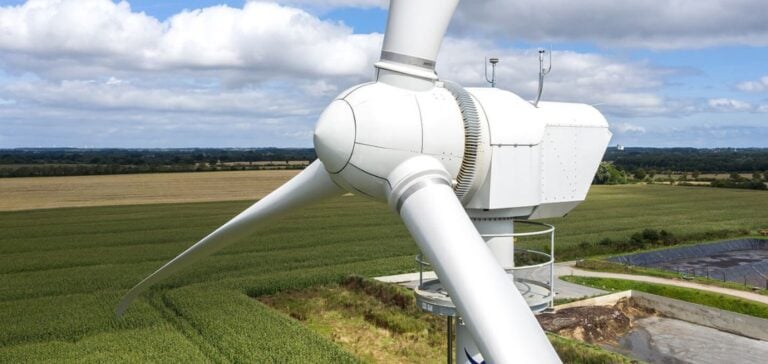The Zhanatas wind farm project in Kazakhstan is nearing completion. The largest wind farm in Central Asia built by a Chinese company will soon be commissioned.
100 MW Wind Farm Project in Asia
Construction of the Zhanatas wind farm in southern Kazakhstan is nearing completion. This landmark project shows how the “Belt and Road” initiative is transforming the country’s electricity matrix.
The wind farm is located near the town of Zhanatas, in the Zhambyl region. With a capacity of 100 MW, it will supply a million homes with clean electricity when its 40 wind turbines are installed. What’s more, once completed, it will reduce CO2 emissions by almost 300,000 tonnes a year.
Full production capacity in June
Construction began in July 2019 and is now in its final phase. Full production capacity should be reached in June this year, despite the impact of COVID-19.
A China-Kazakhstan partnership
The Zhanatas Wind Power Project is an example of cooperation between China and Kazakhstan. Xinhua Guo Qiang, general manager of the Zhanatas wind power plant, said:
“Chinese engineers are mainly involved in equipment installation. Most of the work is carried out by Kazakh construction companies. Cooperation between Chinese and Kazakh colleagues is based on equality, mutual learning and mutual trust.”
An investment of $150 million
The wind turbine is part of the first batch of key energy projects under this cooperation. The Zhanatas project represents the largest installed capacity in Central Asia, and an investment of around $150 million.
The plant’s shareholders are China Power International Holding and Visor Kazakhstan. It is also co-financed by the BAII, the EBRD, ICBC and the Green Climate Fund (GCF).
Asia’s Largest Wind Farm: Addressing the North-South Imbalance
According to Almas Chukin, Managing Partner of Visor Kazakhstan, the park will alleviate the electricity shortage in the south of the country. Indeed, 70% of the country’s electricity is generated in the coal-rich north. Electricity therefore has to be transported from north to south, which is particularly costly.
Almas Chukin declared:
“The new Zhanatas wind power plant is an important part of Kazakhstan’s energy solution to the north-south imbalance. It will address the country’s over-reliance on coal for power generation.”
The Zhanatas Wind Power Project therefore reflects the country’s commitment to energy transition. President Kassym-Jomart Tokayev has pledged to increase the share of green energy to 15% by 2030. What’s more, it should remedy the electricity shortage in southern Kazakhstan.






















